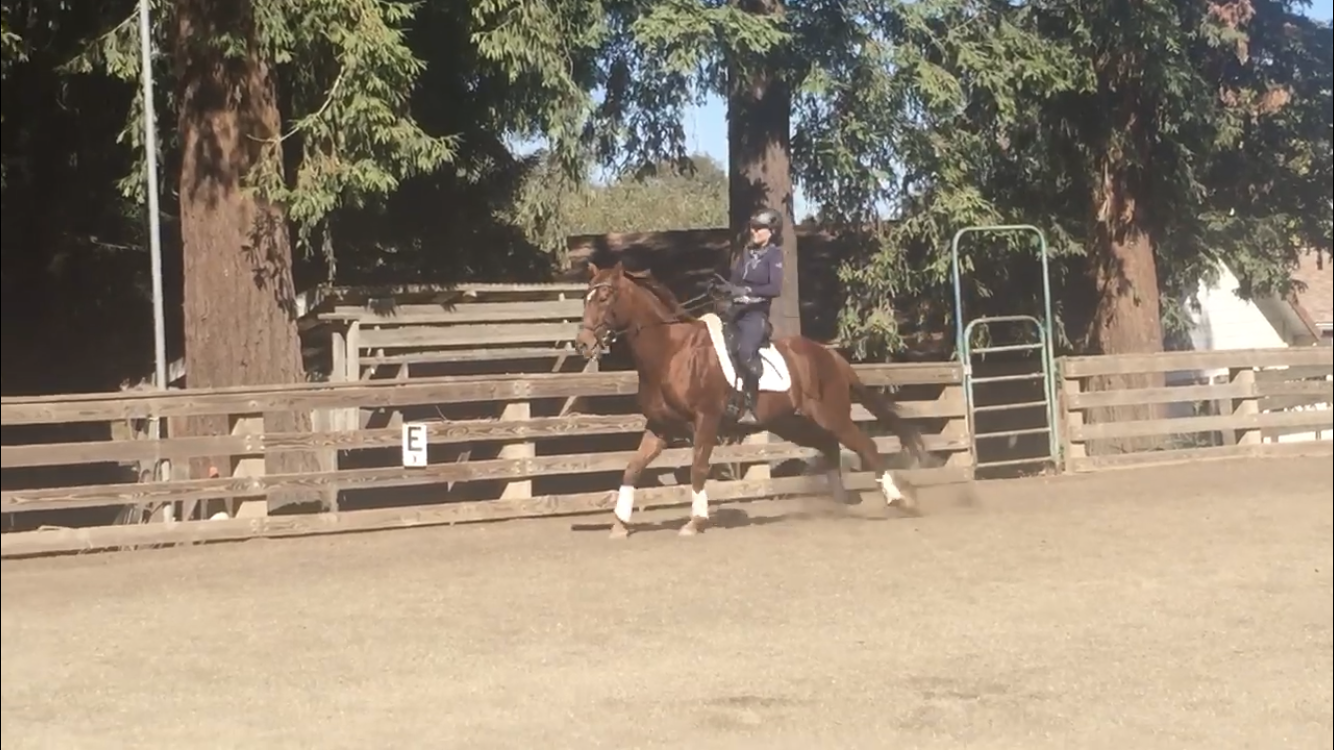Missed Opportunities
Just a quick observation since chilly mornings and extra frisky horses have returned. It’s easy to just shorten the reins, honker down, and try to push the horse through whatever he’s excited about with more leg and even more rein. And that may be an appropriate action, but if you have a horse who is not securely on the aids (i.e. a horse that is on the bit, reacts positively to the leg, generally through, and generally straight), and that’s your go-to response, you’re missing out on a valuable opportunity to have a conversation with your horse about listening to you when he’s tense, when things are not 100% calm and happy.
This is a conversation about returning to relaxation, one of the two prerequisites (rhythm being the other one), for any “training” , i.e. learning on the horse’s part , to be able to happen. This is a conversation about the horse being in riding-partner-mode rather than prey-animal-mode. If the back stays tense, if the reins continue to be required to avoid a runaway fiasco, the horse stays in prey-animal-mode, even if a strong rider can make it look somewhat deliberate.
I’m not sure who said this (I believe Andrew Murphy??): the horse doesn’t learn when the primary communication is via the reins. (I consider this a fact as can be seen this when horses have been doing leg yields and lateral work for years, being held together with the hands and shoved around with the rest of the rider’s body — while they are executing the movements, there is no suppling effect on the body, and no calming effect on the mind. On the other hand, if there is no contact, and the horse is not reaching for the bit, the same unsatisfactory result occurs, because throughness is lacking.)
For example, I’m working with a young horse (who also has issues other than being young) who will, when tense and/or a bit fresh, turn into a giraffe and back off the leg - or, on occasion, run off in a panic. The first order of business here is to install confidence and understanding in the horse to obey the forward aids. He’s not naughty, he’s insecure. And that also means always giving with the hand again. If I’m not having a conversation about relaxation any second I can, I’m missing a valuable opportunity. When the canter gets a little dicey, with a horse like this, I regroup, I get relaxation at the walk. I ask for relaxation at the trot. I ask for those transitions to be prompt. I ask for his attention. This takes a few (or more) extra minutes, but by the time I ask for the next canter depart, I have a reasonable chance that he’d accept and trust my aids, and therefore lets me help him. Not least of all, this gives me an opportunity to praise him, re-enforcing that good things come when he listens even more. If the horse was secure in his response to all my aids, and more supple, I might want to work with this in the canter. But if the building blocks aren’t there, there’s no point in trying to fix something in the canter in a tense situation.
Sure, channeling your inner cowgirl/cowboy impresses bystanders tremendously, and is helpful in an emergency. But more often than not, it’s not an emergency, or at least doesn’t remain one for more than a few seconds. Then you have a choice. Do you train, do you analyze what’s missing, what building block you need go back to? Or do you muddle through and exchange stories with your riding buddies about how wild your horse was today. If your horse is not a little more willing to have a conversation with you in the next tense situation, you’ve missed a valuable training opportunity.
*Picture for illustration purposes only. This horse was just having moment.







